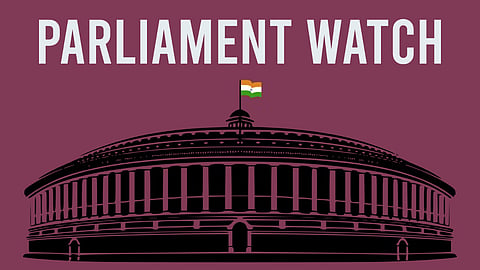
- News
- Columns
- Interviews
- Law Firms
- Apprentice Lawyer
- Legal Jobs
- हिंदी
- ಕನ್ನಡ

On the second day of the 2023 Monsoon Session of Indian Parliament, the Law Ministry answered questions in the Lok Sabha on government litigation, representation of minorities in the judiciary and drafting of legislation.